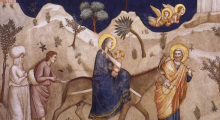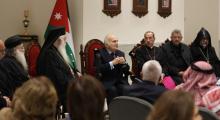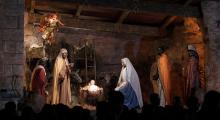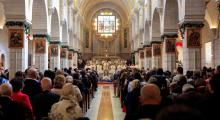Issued by the Catholic Center for Studies and Media - Jordan. Editor-in-chief Fr. Rif'at Bader - موقع أبونا abouna.org
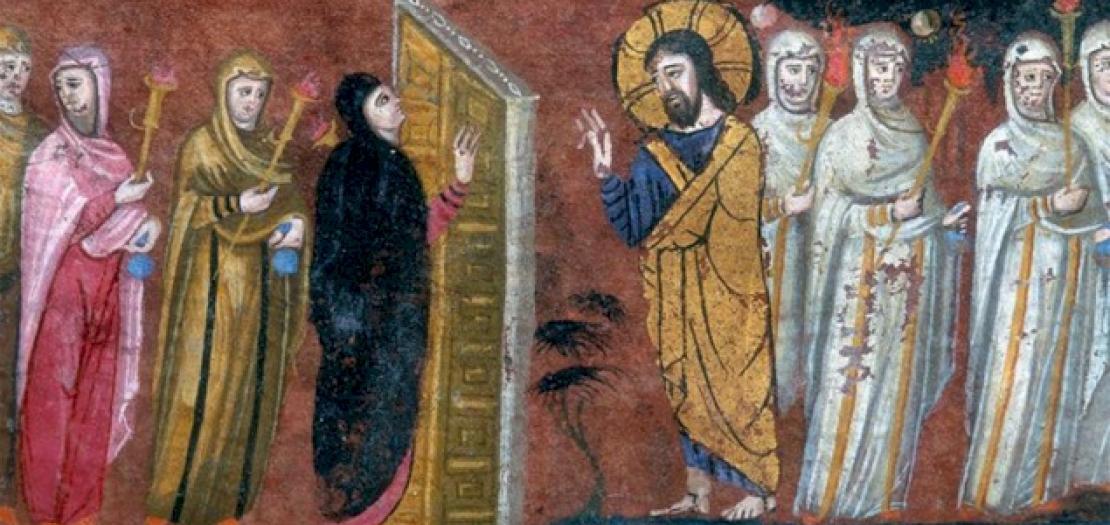
Following is the text of the meditation by His Beatitude Cardinal Pierbattista Pizzaballa, Latin Patriarch of Jerusalem, for the XXXII Sunday in ordinary time, November 12, 2023:
Before reflecting on today's Gospel passage, (Matthew 25:1-13) I would like to review what we heard last Sunday. (Matthew 23:1-12)
Jesus had warned his disciples and the crowd in front of him about the behavior of the Pharisees and the leaders of the people. Speaking of them, Jesus had pointed out an aspect of their life, which was marked by a certain paralysis: Those who occupy ranks or attend banquets, say and not do, not moving the burdens they place on others not even with a finger... This seems strange within the history of God's covenant where everything resembles a journey, where salvation is a journey of walking humbly with God, and where God himself walks with his people.
To understand today's parable, we will begin from this imagery of a Journey, which returns persistently in the 'Parable of the Wise and Foolish Virgins'. The ten virgins go out to meet the bridegroom, (Matthew 25:1) then, at midnight the bridegroom arrives, so the virgins are called to go and meet him, (Matthew 25:6) but those who have no more oil for their lamps cannot continue their journey and must turn back. (Matthew 25:10)
All are therefore on the way to a destination, but not all reach it: only the wise arrive at the meeting for which they set out. While the foolish, like the Pharisees and the leaders of the people in last Sunday's passage, stop at some point.
Why? What does it all mean?
The parable says the difference is the oil: at a certain point, in fact, nighttime comes, and walking in the night requires the light of a lamp.
The wise virgins had a sufficient supply of oil with them, which resembles those who assume that the wait can be prolonged. The others did not store enough oil, like those who do not know that every good thing demands waiting and that every important goal demands a journey.
Actually, a law deeply rooted in human being's way of life reveals that everything needs time to mature, that nothing is given immediately, instantaneously, and that every relationship, event, and goal must be built patiently along the humble passing of the days: it takes months of gestation to be born, it takes years of study to graduate...Everything has its own path.
Even peace is a path.
That is why the wise virgins cannot give their oil to the foolish, because oil is produced over time: there is no need to seek a shortcut, but it is necessary to set out again and begin again. (Matthew 25:9)
Waiting, then, is an art that cannot be improvised, it requires the humble daily exercise of those who never surrender only to what appears; who start over every day without becoming discouraged; and who always rely on a promise that comes to us in the ways and times we expect the least.
Today's parable hints at what this oil is made of that is so necessary for the journey, yet kept in small flasks (Matthew 25:4) by the wise virgins.
Small, because those who set out on the journey do not carry bulky and heavy objects with them.
All to say that waiting is not nourished by striking gestures, which rather suffice the emotion of a moment but do not stand the test of time. Waiting is nourished by humble gestures of love, like those of a servant, that servant mentioned at the end of last Sunday's Gospel. (Matthew 23:11)
However, what this oil is made of, we will find out, only if we have the patience to wait and walk. In a few Sundays, we will be introduced to those who, without even knowing it, would have met the Lord at the end of their journey, by the simple fact of having welcomed one of their brothers along the way with small and simple gestures of love. (Matthew 25:31-46)
These will discover with amazement, just like the wise virgins, that the Lord knows them, that the Lord has seen them. Moreover, they too will enter the wedding feast ("the bridegroom came and those who were ready went into the wedding feast with him. Then the door was locked. (Matthew 25: 10)
+ Pierbattista


